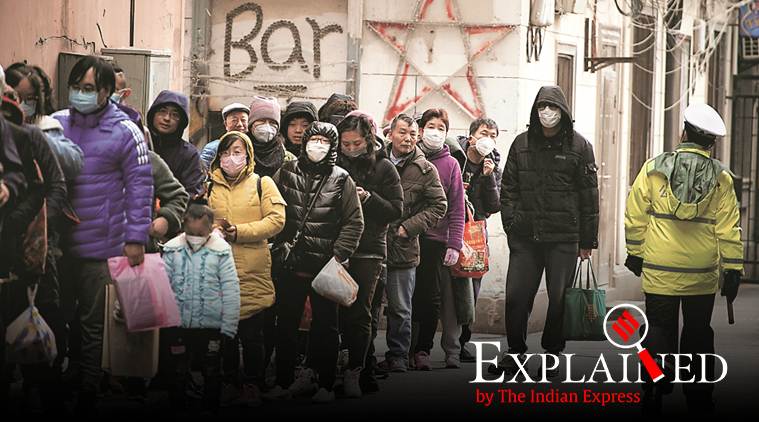Explained: How effective are surgical masks against a viral infection?
Several studies, in fact, have found that surgical masks work well in protecting healthcare workers in hospitals from infections from sick patients
 People line up outside a Shanghai drugstore to buy masks. (Photo: Reuters)
People line up outside a Shanghai drugstore to buy masks. (Photo: Reuters)
Amid a coronavirus outbreak that has killed over two dozen and infected over 600 so far, Chinese authorities have encouraged people in Wuhan city to wear surgical masks in public. Surgical masks are often worn when there is an outbreak, or extreme air pollution. But do these really prevent viral infection? The expert view is that their effectiveness is limited.
Several studies, in fact, have found that surgical masks work well in protecting healthcare workers in hospitals from infections from sick patients. It is also generally agreed that if an infected patient wears a surgical mask, it may prevent the infection from spreading to others. Indeed, the US Centers for Disease Control and Prevention (CDC) has advised surgical masks for patients under investigation for the coronavirus. “Such patients should be asked to wear a surgical mask as soon as they are identified and be evaluated in a private room with the door closed, ideally an airborne infection isolation room if available,” the advisory states.
Where evidence is lacking, on the other hand, is about the effectiveness of surgical masks in protecting uninfected people outside healthcare settings. The effectiveness of a mask depends on whether it forms a proper seal around the mouth and nose — gaps mean that air can still be breathed in. A surgical mask does, however, protect the user from droplets of sneeze and cough of infected patients, according to a report in The New York Times quoting various experts.
Dr P V Sudhakar, Dean of Andhra Medical College is Visakhapatnam, told The Indian Express: “Surgical masks (two-dimensional) can offer some amount of protection”, but “the better method is to use N95 (three-dimensional). They fill out all the gaps around the nose and the mouth.” He added that people wearing masks should not touch the masks with their bare hands and should also be careful while disposing of them.
WHO’s standard recommendations to protect against the novel coronavirus include frequently cleaning hands with alcohol-based hand-rub or soap or water, avoiding close contact with anyone who has a fever or cough, and avoiding consumption of raw or undercooked animal products.
- 01
- 02
- 03
- 04
- 05






































